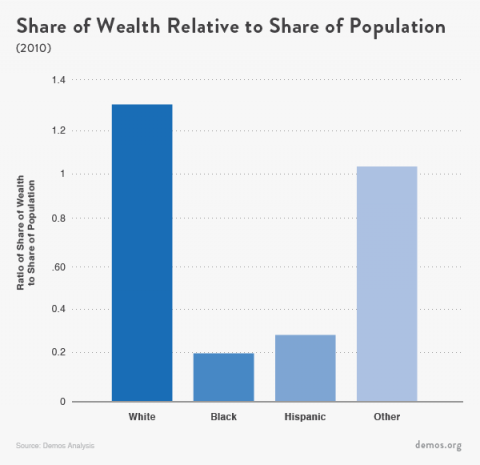Conventional wisdom holds that big city mayors don't have much real power. They wield scant influence over national and global forces that deeply impact America's urban economies—from fiscal and monetary policy to trade and currency policy, and regulation of financial and labor markets. Their powers to raise and invest revenues tend to be limited, with the lion's share of such powers held by state and federal governments. They have little say over the nation's biggest social safety programs—like Medicaid, TANF, and food stamps—that often provide a crucial lifeline for urban residents.
These basic limits of governance can't help but temper the highest hopes progressives have for New York's newly elected mayor, Bill de Blasio. But it must also be said that New York City is not like any other city in America. It's population is bigger than 11 states in the nation, and City Hall actually does have formidable powers, including a powerful tax and finance infrastructure second to no other US city. This year, New York City will collect over $50 billion in taxes and fees—more money than most states. (The rest of NYC's budget comes from federal and state sources.) These funds bankroll a major public sector in New York with an enormous capacity to improve people's lives. For instance, New York has some 75,000 public school teachers—more than all but four states.
In short, unlike most cities, New York City has both the money and manpower to just maybe make a dent in the biggest problem in America, the huge gaps in income and wealth. And, in two months, it will have a mayor who wants to tackle exactly that challenge.
Some of de Blasio's core ideas for promoting equity—such as an income tax hike on the rich to finance universal pre-K—will depend on approval in Albany, at least as now formulated. (De Blasio could also raise new revenues through higher property taxes.) But other of his ideas, such as pushing developers to build affordable housing, seem achievable by a mayor who is ready to fiercely fight for ordinary New Yorkers. Of course, de Blasio has significant power over New York's education system—both its public schools and, to a lesser extent, its public universities—which are all-important in the quest to expand equity.
The truth is that many good ideas for tackling New York's near-record inequality and promoting opportunity are sitting on the drawing board. (See the extensive agenda put together by John Mollenkopf and others here.) All that's been missing is a mayor interested in such ideas.
A final point: the best New York mayors—most notably, Fiorello LaGuardia—have proven adept at cultivating national allies, and mobilizing federal resources, for their urban agenda. De Blasio, with his national progressive profile, is well positioned to emulate this strategy.
There will always be limits to the power of mayors, even one who governs the 16th largest economy in the world, as de Blasio will. But the opportunities to make a difference in New York are enormous after yesterday. And the rise of a new national leader determined to take on inequality could not have come at a better moment.


Spread the word